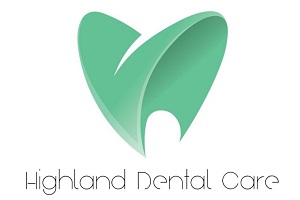Having a baby is an exciting time, but it also comes with its own set of challenges. One of those challenges is ensuring your little one's dental health stays intact. Baby bottle tooth decay is a common issue that many parents face, and it can lead to painful cavities and other dental problems down the line. In this blog post, we'll discuss what baby bottle tooth decay is, how to recognize the symptoms, and, most importantly - how you can prevent it from happening in the first place! So let's dive in and give your child a happy, healthy smile for life!
What is Baby Bottle Tooth Decay?
Baby bottle tooth decay, also known as early childhood caries, is a common dental problem that affects many infants and young children. This condition occurs when the teeth of a child are exposed to sugary liquids or foods for prolonged periods of time. The sugar in these substances mixes with bacteria found in the mouth to create acid, which attacks the tooth enamel.
The most common types of sugary liquids responsible for baby bottle tooth decay include formula milk, fruit juice, soda pops, and other sweetened drinks. When an infant falls asleep while drinking any of these fluids, they tend to pool around their teeth and gums - causing harm over time.
This type of dental decay can cause pain and discomfort for your baby since it results in cavities forming on their small teeth. If left untreated, it can lead to more severe oral health issues later down the line, such as infections or even premature loss of teeth.
It's essential that parents take proactive steps towards preventing this condition from occurring by limiting their child's exposure to sugary drinks/foods before bedtime or naptime and regularly scheduling dental checkups with a pediatric dentist.
Symptoms of Baby Bottle Tooth Decay
Symptoms of baby bottle tooth decay can be easily identified. The first sign is discoloration or staining on the teeth. This usually appears as white, yellow, brown, or black spots on the front of the teeth. Another symptom may be sensitivity to hot and cold foods and drinks.
As tooth decay progresses, it can cause pain and discomfort in your baby's mouth. Your baby may become irritable and refuse to eat because of this pain.
You may also notice bad breath in your baby if they are suffering from tooth decay. This is caused by bacteria that feed on sugars left on the teeth after feeding.
If you notice any of these symptoms in your baby, it's important to schedule an appointment with a dentist as soon as possible. Early intervention can prevent further damage to their teeth and help them develop good oral hygiene habits for life.
How to Prevent Baby Bottle Tooth Decay
By following a few simple tips, you can prevent baby bottle tooth decay and ensure that your little one's teeth remain healthy and strong. Remember to clean their teeth twice a day, limit sugary drinks, offer water instead of milk or juice at bedtime, and schedule regular dental checkups. With proper care and attention, you can help your child maintain good oral health from an early age. So start implementing these habits today and give your child the gift of a beautiful smile for life!
Please reach out to our dental practice at 70 Pennington Dr, Ste 7, Bluffton, SC 29910, to have a consultation with our dentists. Call Dentist in Bluffton, SC, or schedule an online consultation, and we'll guide you further.
